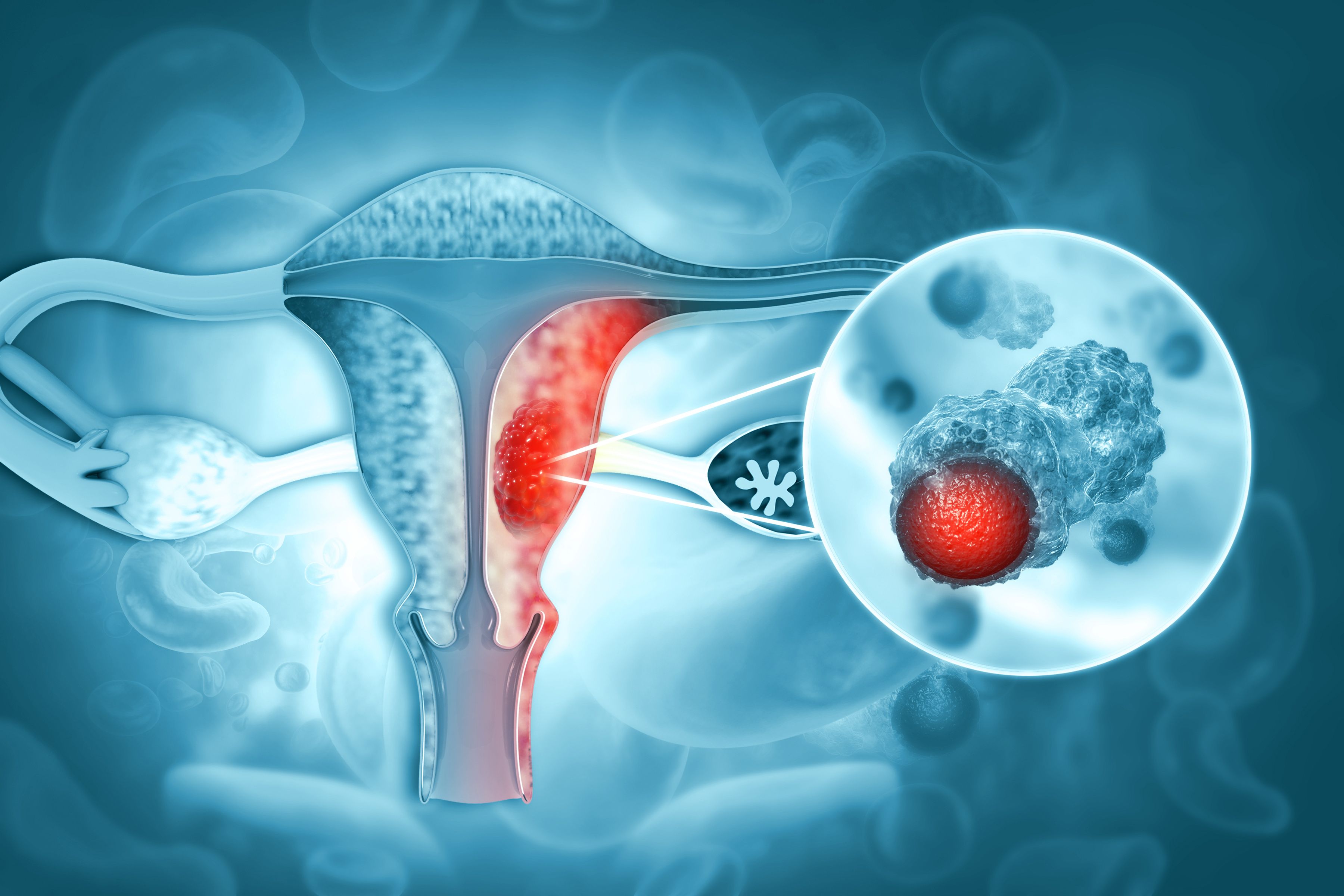FDA Grants Priority Review to sBLA for Jemperli plus Chemotherapy for Adults with Primary Advanced, Recurrent Endometrial Cancer
Data from part one of the Phase III RUBY trial show Jemperli (dostarlimab) plus chemotherapy produced a statistically significant and clinically meaningful survival benefit in patients with primary advanced or recurrent endometrial cancer, including those with mismatch repair proficient/microsatellite stable tumors.
Image credit: Crystal light | stock.adobe.com

The FDA has granted Priority Review to GSK’s supplemental Biologics License Application (sBLA) seeking to expand the indication of Jemperli (dostarlimab) combined with standard-of-care chemotherapy to all adults with primary advanced or recurrent endometrial cancer, including those with mismatch repair proficient (MMRp)/microsatellite stable (MSS) tumors.1
Jemperli is a programmed death receptor-1 (PD-1)-blocking antibody that binds to the PD-1 receptor and blocks its interaction with the PD-1 ligands PD-L1 and PD-L2. It has shown potential both as a monotherapy and in combination with standard of care and future novel cancer therapies, particularly in patients with currently limited treatment options.
In August 2023, the FDA approved Jemperli with carboplatin and paclitaxel, followed by Jemperli as a monotherapy, for the treatment of adults with primary advanced or recurrent endometrial cancer that is mismatch repair deficient (dMMR) as determined by an FDA-approved test, or microsatellite instability high based on findings from an interim analysis of the first part of the RUBY/ENGOT-EN6/GOG3031/NSGO trial.2 The FDA previously approved Jemperli as a single agent in adults with dMMR recurrent or advanced endometrial cancer that has progressed on or after prior treatment with a platinum-containing regimen in any setting and who are not candidates for curative surgery or radiation.
GSK based the sBLA filing on data from the part one of the two-part, randomized, double-blind, multicenter, Phase III RUBY trial. Part one of the trial is evaluating Jemperli plus carboplatin-paclitaxel followed by Jemperli compared with carboplatin-paclitaxel plus placebo followed by placebo. Part two of the trial is evaluating Jemperli plus carboplatin-paclitaxel followed by Jemperli plus Zejula (niraparib) as maintenance therapy compared with placebo plus carboplatin-paclitaxel followed by placebo.3
The Jemperli combination achieved the trial’s primary endpoints of investigator-assessed progression-free survival (PFS) and overall survival (OS), showing a statistically significant and clinically meaningful benefit in the overall population of patients administered Jemperli plus carboplatin-paclitaxel compared with chemotherapy alone. Part one of the RUBY trial is the only clinical study to demonstrate a statistically significant survival benefit in the overall patient population, according to GSK.
In part two, at a median follow-up of 24.8 months (range, 19.2-36.9), the addition of Jemperli to chemotherapy produced a 72% reduction in the risk of disease progression or death compared with placebo plus chemotherapy. The estimated 24-month PFS rate was 61.4% compared with 15.7% with placebo. The 24-month OS rate with the Jemperli combination was 83.3% compared to 58.7% with placebo or chemotherapy.4
In terms of safety, the tolerability analysis from RUBY showed a safety profile for Jemperli and carboplatin-paclitaxel that was generally consistent with the known profiles of the individual agents. Grade 3 or higher adverse effects (AEs) were reported in 70.5% of patients in the Jemperli (n = 241) cohort and in 59.8% of patients in the placebo (n = 246) cohort. Serious toxicities were reported in 37.8% and 27.6% of patients, respectively.
The most common any-grade AEs experienced by more than 20% of patients in the investigative and control cohorts were fatigue (51.9% vs 54.5%, respectively), alopecia (53.5% vs 50.0%), nausea (53.9% vs 45.9%), peripheral neuropathy (44.0% vs 41.1%), anemia (37.8% vs 42.3%), arthralgia (35.7% vs 35.0%), constipation (34.4% vs 35.8%), diarrhea (31.1% vs 28.9%), myalgia (26.1% vs 27.6%), hypomagnesemia (21.6% vs 28.5%), peripheral sensory neuropathy (21.2% vs 19.1%), reduced appetite (21.6% vs 17.5%), dyspnea (18.3% vs 20.3%), and rash (22.8% vs 13.8%).
References
1. US FDA accepts for priority review GSK’s application for an expanded indication of Jemperli (dostarlimab) plus chemotherapy to include all adult patients with primary advanced or recurrent endometrial cancer. News release. GSK. April 23, 2024. Accessed April 24, 2024. https://www.gsk.com/en-gb/media/press-releases/fda-accepts-gsk-application-expanded-indication-of-jemperli-dostarlimab-plus-chemotherapy-include-all-adult-patients-primary-advanced-recurrent-endometrial-cancer/
2. Jemperli (dostarlimab) plus chemotherapy approved in the US as the first new frontline treatment option in decades for dMMR/MSI-H primary advanced or recurrent endometrial cancer. News release. GlaxoSmithKline. July 31, 2023. Accessed April 24, 2024. https://www.gsk.com/en-gb/media/press-releases/jemperli-plus-chemotherapy-approved-in-us-for-new-indication/
3. Jemperli (dostarlimab) plus Zejula (niraparib) combination significantly improved progression-free survival in primary advanced or recurrent endometrial cancer in RUBY Part 2 Phase III trial. GSK. News release. December 18, 2023. Accessed April 24, 2024. https://www.gsk.com/en-gb/media/press-releases/jemperli-plus-zejula-combination-significantly-improved-progression-free-survival-in-endometrial-cancer-phase-iii-trial/
4. Mirza MR, Chase DM, Slomovitz BM, et al. Dostarlimab for primary advanced or recurrent endometrial cancer. N Engl J Med. Published online March 27, 2023. Accessed April 24, 2024. doi:10.1056/NEJMoa2216334
FDA Grants Ziftomenib with Breakthrough Therapy Designation for NPM1-Mutant Acute Myeloid Leukemia
April 23rd 2024Data from the Phase Ib portion of the KOMET-001 trial showed that the once-daily oral treatment may provide a substantial improvement over available therapies for relapsed/refractory NPM1-mutant acute myeloid leukemia.